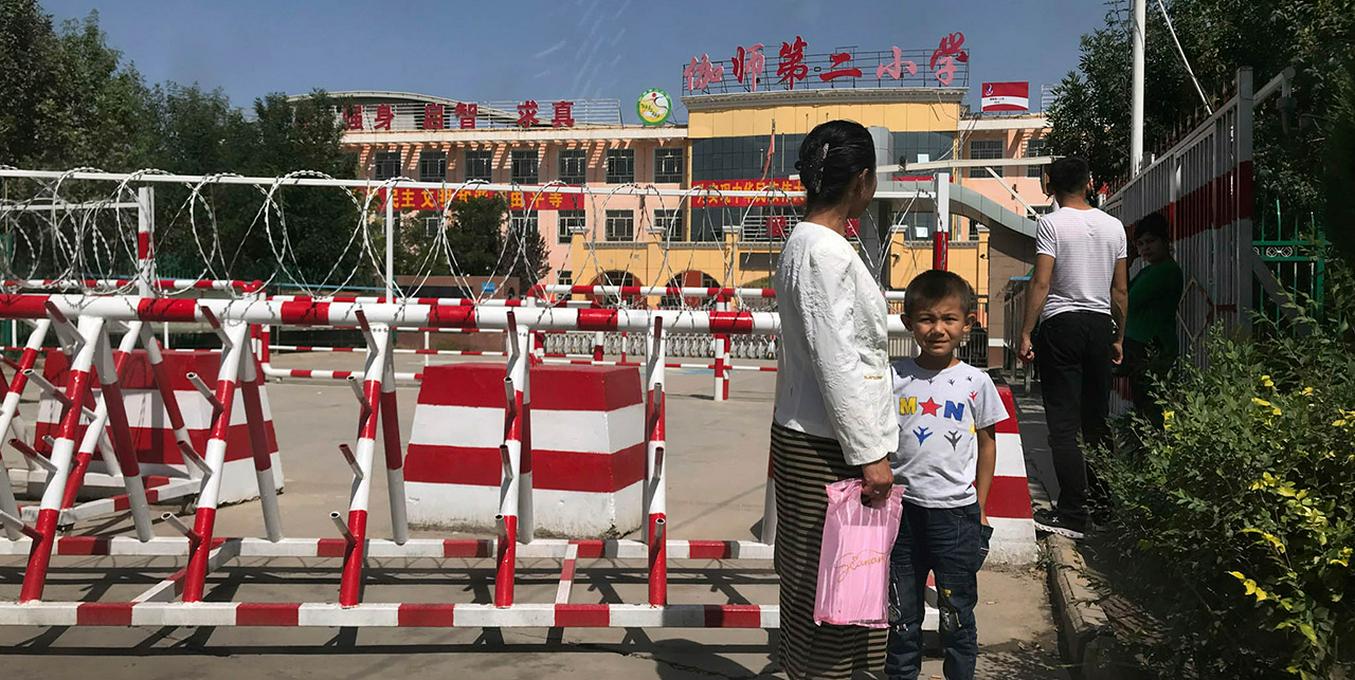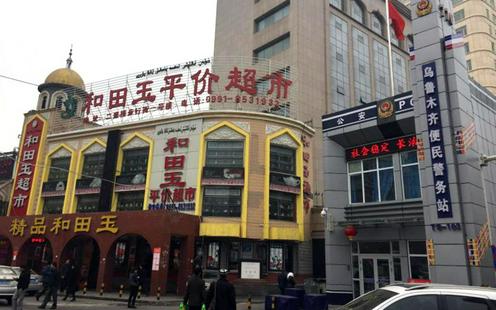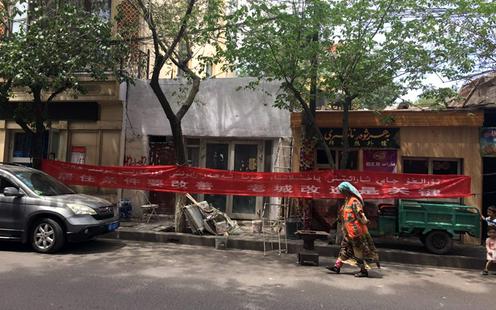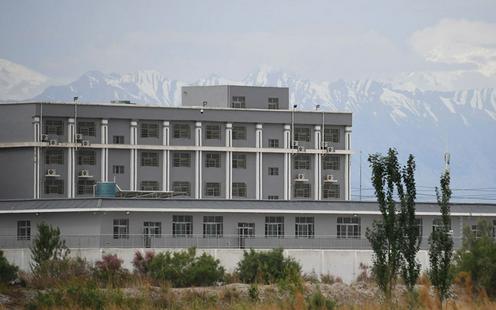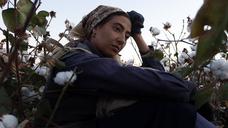How does the Han Chinese colonial regime work in Xinjiang? How do such apparently different instruments as the capitalist exploitation of rural migrants in cities and the state policies of checkpoints and re-education camps ultimately converge on the same goal – rendering Uyghurs mobile and deprived of firm ties to each other and to their land? The American geographer Sarah Tynen of the University of Boulder, Colorado, recently set out to find answers to just these questions. Her study “Dispossession and displacement of migrant workers: the impact of state terror and economic development on Uyghurs in urban Xinjiang” has been published in the latest edition of the academic journal Central Asian Survey.
Colonial alienation
According to Tynen, China acts in practice as the coloniser of Uyghur lands. The state-organised migration of Han Chinese to Uyghur areas that began in the 1940s is similar to the settler colonisation of North America and Australia by the English. During this time, the number of Han Chinese in the region has grown from 200,000 to 9 million. Ethnic Han and Chinese culture dominate the state apparatus and education system. Finally, the region’s natural resources (land, oil, gas, coal and more) are being alienated from the native Turkic population and exploited by Chinese firms. The role of the avant-garde in the settler colonisation of the Xinjiang Uyghur Autonomous Region (XUAR) is played by the militarised farms known as bingtuan farms in Mandarin, where, according to official data, 2.6 million Han Chinese military farmers are employed. “Most authors agree that a recent dramatic increase in Han immigration is the main cause of unrest in Xinjiang,” Tynen notes.
In her study, Tynen sets out two key practices of colonialism – displacement and dispossession. Displacement is defined as “forced physical relocation” that leads to the loss of social identity and solidarity among a group of people. Though this is primarily a matter of the movement of bodies in space, other practices too can contribute to the social and mental displacement of the Uyghur people, such as the replacement of Uyghur place names on maps and the effacement of their language from major towns.
Dispossession, Tynen explains, is an even more encompassing phenomenon, including “the geographies, materialities and ideologies that strip people of land and livelihood”. Forms of dispossession can therefore run from the very physical acts of expropriation and resource extraction to the “destruction of knowledge systems, ways of life, or modes of thinking” (such as the replacement of communal land usage with conceptions of ownership based on title deeds). Karl Marx described this process in relation to England in the sixteenth to nineteenth centuries, where peasants were chased off of their lands and sent either to the cities as disempowered workers or to the colonies as itinerant labourers. In “communist” China, Tynen argues, essentially the same mechanisms are at work. Besides this, dispossession entails a racist designation of certain groups of citizens as suspect and dangerous (such as the Uyghurs). In Xinjiang, dispossession has historically taken the form of the militarisation of land (bingtuan) and urbanisation and continues through the movement of Uyghurs from rural to urban districts. The life experiences of rural migrants in Xinjiang’s cities, their experience of the “everyday and invisible violence of economic development and the nation-state” help us to better understand the political and economic logic behind the more obvious and shocking violence of the camps. In many ways, the re-education camps are simply the visible tip of the iceberg of this wider systemic violence.
A breath of freedom
Tynen spent a total of 24 months in Ürümchi (Urumqi) between 2014 and 2017, talking primarily to female migrants from the villages. In total she conducted 100 interviews. For her interviewees, as for millions of women migrants around the world, the move to the city meant above all freedom – freedom from demeaning restrictions, from disapproving looks, from interfering relatives and kin: “I like being able to wear jeans and nobody can stop me”; “You can’t go anywhere in my home town without being gossiped about”. This freedom from community surveillance was no less appreciated by the men.
The peculiarity of the situation in Xinjiang, though, is that Uyghurs often flee to Ürümchi not in order to seek freedom from religion, but, on the contrary, to be able to more freely express their religious feelings and practices. In rural areas there are tight restrictions on headscarves, mosque attendance and Ramadan fasting. “When I first moved here, Ürümchi seemed awesome to me. There was every kind of person and every kind of opportunity, and a lot more freedom. In such a big city, it’s impossible for a lot of people to know your business, and also harder to control what people do and wear as well. I can wear the headscarf and wear all black [in accordance with Islamic law] here [in the city].” (Aygul, moved to Ürümchi 13 years ago).
Other informants spoke openly of the vast systems of surveillance applied in their hometowns – systems which control not only religious behaviour: “There are police and roadside checkpoints everywhere, people are afraid to leave their homes for fear of getting arrested for no reason”; “Everybody in [my home town] wants to leave and come to Ürümchi, and our relatives told us not to come home and to stay in Ürümchi for now, at least until the situation [a reference to the persecution of the Uyghurs] gets better”. By suppressing the normal everyday lives of Uyghurs in small towns and villages, the government makes it easier to exert control over their lands, Tynen writes.
At the same time, rural migrants’ complaints can seem contradictory. They seek freedom both from community pressure (about where you are going, what you are wearing, who you are meeting) and from government pressure – in order to wear headscarves and strict clothing and go to the mosque… Many informants complained to their interviewer both about their parents and about the government, and dreamt of freeing themselves from any kind of control.
The second powerful stimulus to migration was economic violence. Interestingly, the expression “economic development” (iqtisad tereqqiyati in Uyghur) has become so strongly associated with the Chinese state, Tynen writes, that it is used almost synonymously. It is also used euphemistically in Uyghur to refer to Han Chinese and government influence, she says, allowing Uyghurs in a veiled way to blame the economy for their problems instead of undertaking the more risky business of directly criticising the government, while still communicating that this is what they mean. To the researcher’s question: “How do you think economic development has affected your home town?”, the narrative of “the [rural] economy has gotten worse” was a constant theme in the interviews. This is a reflection not of a quantitative measure of how the Xinjiang economy is performing (according to the statistics, the XUAR’s economy has shown consistent growth over the last ten years), but of the position of the Uyghurs in it: economic opportunities have diminished for them, while the cost of living has risen. Han migrants are replacing Uyghur businesses and employees.
What the Uyghur respondents often complained about, though, was not simply being outcompeted in a free-market sense, but having their activity stifled by restrictions. According to one respondent, the authorities are artificially pressing down prices for wheat and vegetables and appropriating part of the profit. Many of them specifically pointed to the economic effects of state de-extremification policies. “They are making everyone go to political meetings instead of working, so it’s had a really negative effect on economic development,” said one informant. All markets are forced to shut down at 5 pm Xinjiang time for the nightly curfew, pointed out another. “People used to always be going to the market and doing business, but now everyone is under too much control to do much of anything.” This was of course even before the large-scale internments in “re-education” camps began. Many also complained of large-scale development projects that harmed the environment and diverted resources and were more about meeting central targets and competing for and distributing funds than bringing tangible economic benefits to the local population.
All in all, Tynen writes, in rural areas of Xinjiang ethnic discrimination and economic alienation work together to create an acute sense of desperation and force Uyghurs from their lands. When speaking about their move to the city, all of the interviewees at some point used the expression amal yok – there is no choice, there is no way other way to get by – the only option is to move to the city.
Injustice in the city
In the city, however, migrant Uyghurs ended up being even more vulnerable, and their freedom even more fragile. In March 2017, all recent arrivals (since 2012) were forced to leave Ürümchi. Police officers and government-employed workers at the residents’ committees (shequ) have always frequently inspected homes to check that people are registered to live there, but now they were accompanied by military police. Uyghurs who remained in the city were tracked down and arrested. The mass eviction was justified on the grounds that it would be easier to carry out checks as to whether they were terrorists or criminals in their home locations.
The regulations were then sharpened even further. From April 2017, Uyghurs were forbidden from living in their shops. In May, many Uyghur stores were demolished. In June, the authorities started to send back all Uyghur rural migrants, no matter how long they had resided in Ürümchi. In July it was decided that, irrespective of registration, Uyghurs could not rent a home in the south of the city. Only homeowners were allowed to stay. The hidden goal behind forcibly returning migrants to their rural homes, Tynen contends, was to ensure that quotas stating that 10% of the population must be in re-education camps were more easily met in southern Xinjiang.
Tynen underlines that it was above all poor Uyghurs and the unemployed who were targeted by the evictions. The Chinese authorities’ official position is that it is those who are suspected of religious extremism who are sent to the camps. Those who come from poor, rural backgrounds, of course, also tend to be the most religious. In practice, what is going on is essentially an enforced and protracted economic crisis in the Uyghur population and the state’s attempt to deal with it through eviction and internment in camps, Tynen argues.
These evictions took place extremely rapidly (albeit not at the speed of Stalinist deportations). One day at the start of May, Tynen went out onto the street and saw a pick-up truck full of furniture standing outside a row of small stores operated by a number of her respondents. Around ten young children with backpacks were piled into the vehicle. All of the shops were shuttered and locked, with long white sheets of paper in the form of an X covering the doors to prevent people from getting back in. The owners of a small noodle shop had not even had time to clean out their store. Even the recently built police station was sealed off. The whole neighbourhood was scheduled for demolition. From the point of view of capitalism, Tynen writes, tearing down a street of successful businesses is counterproductive, but in this case the state’s need for order and control came first. Demolitions (under the pretext of erecting new buildings), the revocation of registration rights, evictions (under the formal pretext of regularisation and the fight against extremism) in practice serve as the flexible tools of colonialism. Evictions were conducted according to two criteria: whether a person is of Uyghur nationality and whether they rent accommodation. In other words, they targeted Ürümchi’s poorest, most vulnerable residents, those who are simply trying to find stable work.
Tynen underlines that such a regime, based on ethnic discrimination, justifies and normalises internment and incarceration through discourses of national security and public safety, presenting eviction and internment as something ordinary and self-evident. People are thus taught to feel grateful to the government for the fight against terror and for the region’s “economic development”. This Chinese regime, which Tynen qualifies as colonial, works simultaneously in rural localities, forcing Uyghurs to migrate to Ürümchi, and in major towns and cities – where, uprooted from the land, they are easier to manipulate.
Artyom Kosmarskiy
Translated and adapted with reference to the original journal article by Nick L.
-
 14 February14.02From Revolution to Rupture?Why Kyrgyzstan Dismissed an Influential “Gray Cardinal” and What May Follow
14 February14.02From Revolution to Rupture?Why Kyrgyzstan Dismissed an Influential “Gray Cardinal” and What May Follow -
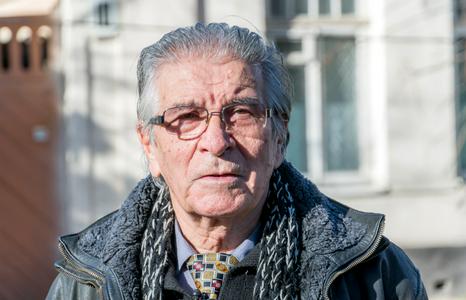 05 February05.02The “Guardian” of Old Tashkent Has Passed AwayRenowned local historian and popularizer of Uzbekistan’s history Boris Anatolyevich Golender dies
05 February05.02The “Guardian” of Old Tashkent Has Passed AwayRenowned local historian and popularizer of Uzbekistan’s history Boris Anatolyevich Golender dies -
 24 December24.12To Clean Up and to ZIYAWhat China Can Offer Central Asia in the “Green” Economy
24 December24.12To Clean Up and to ZIYAWhat China Can Offer Central Asia in the “Green” Economy -
 23 December23.12PhotoTokyo DriveJapan to invest about $20 billion in projects across Central Asia over five years
23 December23.12PhotoTokyo DriveJapan to invest about $20 billion in projects across Central Asia over five years -
 17 December17.12Sake for SixCentral Asia’s Rapprochement with Japan Comes with Hidden Pitfalls
17 December17.12Sake for SixCentral Asia’s Rapprochement with Japan Comes with Hidden Pitfalls -
 17 December17.12Gulshan Is the BestYoung Uzbek Karateka Becomes World Champion
17 December17.12Gulshan Is the BestYoung Uzbek Karateka Becomes World Champion
